In today’s fast-paced world, the demand for versatile and durable storage solutions is at an all-time high. Enter the world of C cans, also known as shipping containers, which have transcended their traditional use to become a cornerstone in modern storage, construction, and creative projects. Whether you’re a business looking for secure storage options or an individual dreaming of a container home, understanding the ins and outs of C cans for sale is crucial. This comprehensive guide will walk you through everything from the basics of C cans to selecting the right one for your needs, ensuring you make an informed decision.
Understanding C Cans for Sale
What Are C Cans?
C cans, or shipping containers, are large steel boxes designed to transport goods across oceans and continents. Their robust construction makes them ideal for withstanding harsh weather conditions, heavy loads, and long journeys. However, their use has significantly evolved over the years. Today, C cans are not only used for shipping but have also found applications in storage, office space, and even as building blocks for homes and commercial spaces. This versatility has sparked a surge in interest in C cans for sale, with both new and used options available on the market.
Shipping containers come in various sizes, but the most common ones are the 20-foot and 40-foot containers. These sizes are widely used due to their practicality and availability. The 20-foot container provides approximately 1,170 cubic feet of storage space, while the 40-foot container offers double the capacity, with around 2,390 cubic feet. However, it’s important to note that there are specialized containers available as well, such as High Cube containers that provide extra vertical space, Reefer containers for temperature-controlled storage, and Flat Rack containers for transporting oversized cargo.
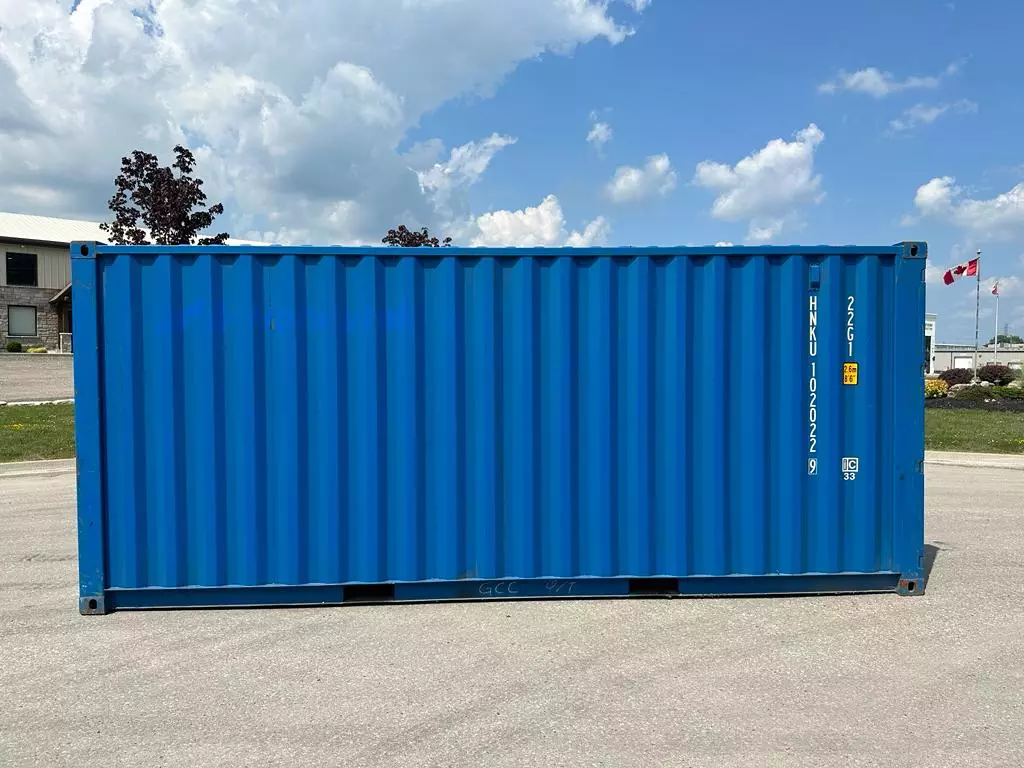
Types of C Cans Available
When exploring C cans for sale, you’ll encounter a variety of options. Here’s a breakdown:
- New vs. Used C Cans: New C cans, often referred to as “one-trip” containers, have made a single journey and are in excellent condition. They are typically manufactured in Asia and transported to various destinations worldwide. Used C cans, while still structurally sound, have been in service for several years and may show signs of wear. However, they are a cost-effective option for those on a budget.
- Standard Sizes: The most common sizes are the 20-foot and 40-foot containers. The choice between them depends on your space requirements and the project’s scope. The 20-foot container is often preferred for residential or small-scale commercial projects, while the 40-foot container is suitable for larger-scale projects or when more storage space is needed.
- Specialized Types: Beyond standard containers, there are High Cube containers, offering additional height for more space. These containers are ideal for projects that require taller ceilings, such as constructing multi-level container homes or creating spacious office environments. Reefer containers, on the other hand, are equipped with refrigeration units, making them suitable for storing perishable goods or temperature-sensitive items. Flat Rack containers feature collapsible sides, allowing for easy loading and unloading of oversized cargo.
Understanding the types of C cans available is the first step in determining which option best suits your needs, whether for storage, construction, or creative projects.
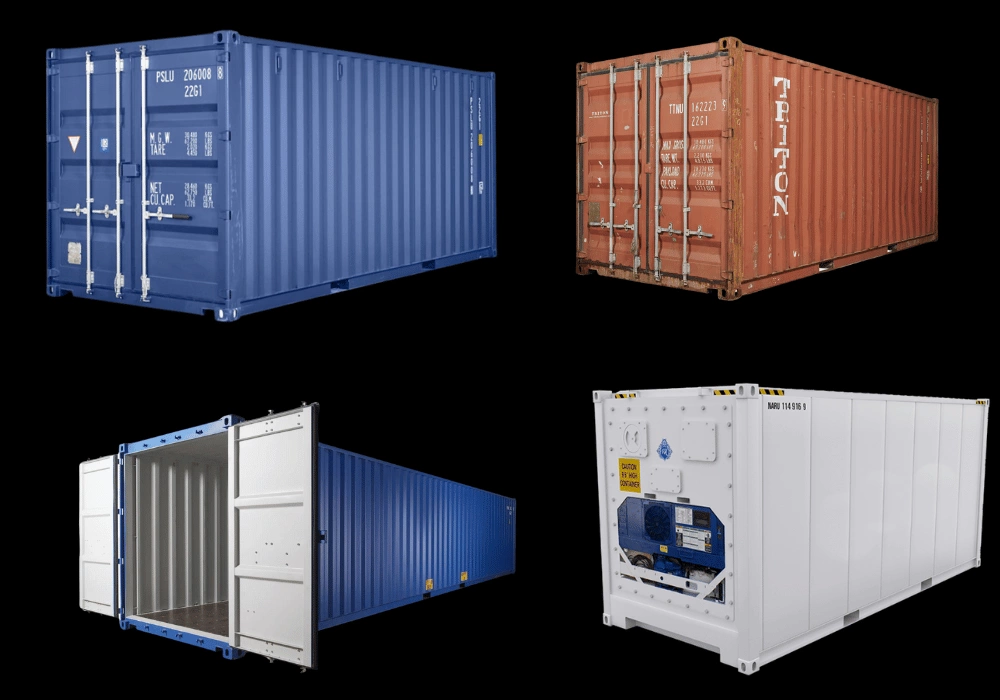
Why Consider C Cans for Your Storage or Project Needs?
Durability and Security
One of the most compelling reasons to consider C cans for sale is their exceptional durability. Constructed from high-grade, corrosion-resistant steel, these containers are designed to endure extreme weather conditions, making them ideal for both temporary and permanent storage solutions. The steel structure also offers superior security against break-ins, a critical consideration for storing valuable tools, equipment, or inventory.
Moreover, many C cans come equipped with advanced locking mechanisms, and further modifications can be made to enhance security, such as installing security bars on windows or additional locking systems on doors.
To ensure the longevity of your C can, it’s important to understand the materials used in its construction. Most shipping containers are made of corten steel, which is known for its high tensile strength and resistance to corrosion. Corten steel contains alloys that form a protective layer when exposed to the elements, preventing further corrosion and increasing the container’s lifespan.
Versatility of Use
The versatility of C cans is another significant advantage. Beyond traditional storage, these containers are being repurposed for a myriad of innovative projects. From comfortable and stylish homes and offices to pop-up shops and cafes, the possibilities are virtually limitless. This adaptability allows individuals and businesses to tailor C cans to meet specific needs, whether it’s a mobile office on a construction site or a sustainable home.
Container homes, also known as “cargotecture,” have gained popularity as a cost-effective and eco-friendly housing solution. These homes are constructed using one or more shipping containers, which are transformed into comfortable living spaces. Container homes offer flexibility in design, allowing for customizable layouts, and can be constructed much faster than traditional homes.
In addition to homes, C cans are also used for various commercial purposes. Mobile offices, for example, provide a flexible workspace that can be easily transported to different locations. They are ideal for construction sites, events, or any situation where a temporary office space is needed. Pop-up shops and cafes have also embraced C cans as a trendy and cost-effective alternative to traditional brick-and-mortar establishments. The unique aesthetic of a repurposed shipping container can attract customers and set businesses apart from the competition.
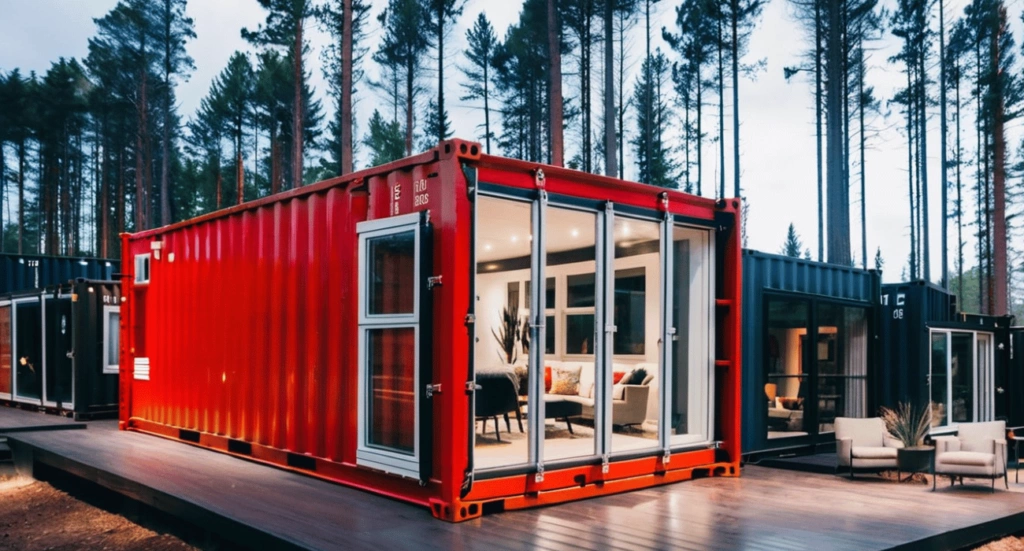
Environmental Impact
Choosing C cans for sale also has a positive environmental impact. Repurposing used shipping containers for construction or storage reduces the need for new building materials, thus saving energy and resources. Additionally, container homes and offices are often celebrated for their potential in creating energy-efficient spaces, further contributing to environmental sustainability.
Container homes can be designed with energy-efficient features such as insulation, solar panels, and rainwater harvesting systems. The compact size of shipping containers also promotes efficient use of space, reducing the overall environmental footprint of a project. By repurposing C cans, you are not only giving them a second life but also reducing waste and promoting a more sustainable approach to construction and storage.
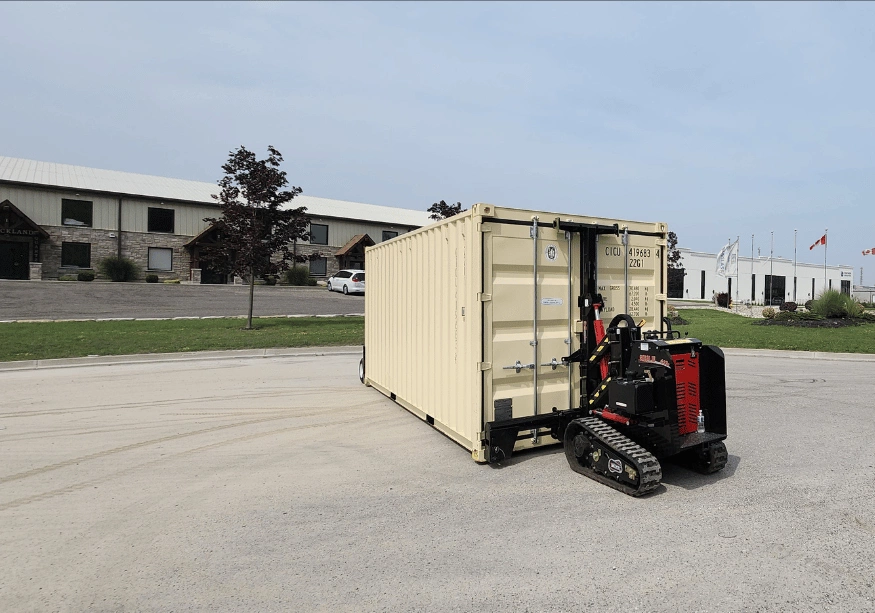
How to Choose the Right C Can for Sale
Assessing Your Needs
Before diving into the purchase of a C can, it’s crucial to assess your specific needs. Consider the size and type of container that would best suit your project. For instance, if you’re planning to build a container home, you might opt for a High Cube container for the extra headroom. On the other hand, a standard 20-foot container may suffice for basic storage needs.
Additionally, think about any modifications you might require, such as the addition of windows, doors, or internal partitions. These considerations will help you narrow down your options and find a C can that meets your requirements.
When assessing your needs, it’s important to consider the intended use of the container. For example, if you plan to use it for storage, think about the items you’ll be storing and their dimensions. This will help determine the size and configuration of the container that would best accommodate your storage needs. If you’re considering a container for a construction project, take into account the space requirements for the intended purpose, whether it’s an office, a retail space, or a workshop.
New vs. Used: Making the Best Choice
Deciding between a new or used C can depends on several factors, including your budget, the intended use, and personal preferences regarding aesthetics. New containers offer a pristine condition and longer lifespan but come at a higher cost. Used containers, while more affordable, may require additional maintenance or refurbishment.
When considering used containers, it’s important to inspect them thoroughly before making a purchase. Look for signs of corrosion, especially on the roof and floor, as these areas are more prone to damage. Check the condition of the doors, ensuring they open and close smoothly and that the seals are intact. It’s also advisable to inquire about the container’s history, including its previous usage and any repairs that have been made.
It’s important to note that used containers may have cosmetic imperfections such as dents, scratches, or faded paint. While these do not affect the structural integrity of the container, they may impact the overall appearance. If aesthetics are a priority, you may opt for a new container or consider refurbishing a used one.
Customization Options
Many suppliers offer customization services, allowing you to tailor your C can to your specific needs. From basic modifications like paint and decals to more complex alterations such as installing HVAC systems, electrical wiring, and plumbing, the customization options are extensive. When choosing a C can, consider suppliers that can provide these services, saving you time and ensuring professional results.
When it comes to customization, the possibilities are vast. You can choose the colour of your container to match your branding or personal preference. Windows and doors can be added to enhance natural light and ventilation. Insulation can be installed to create a comfortable interior environment, making the container suitable for year-round use. Additional features such as electrical outlets, lighting fixtures, and plumbing can be incorporated to meet specific requirements.
It’s important to discuss your customization needs with the supplier to ensure they have the capabilities to deliver the modifications you desire. They can provide guidance on the feasibility of certain modifications and offer suggestions based on their experience.
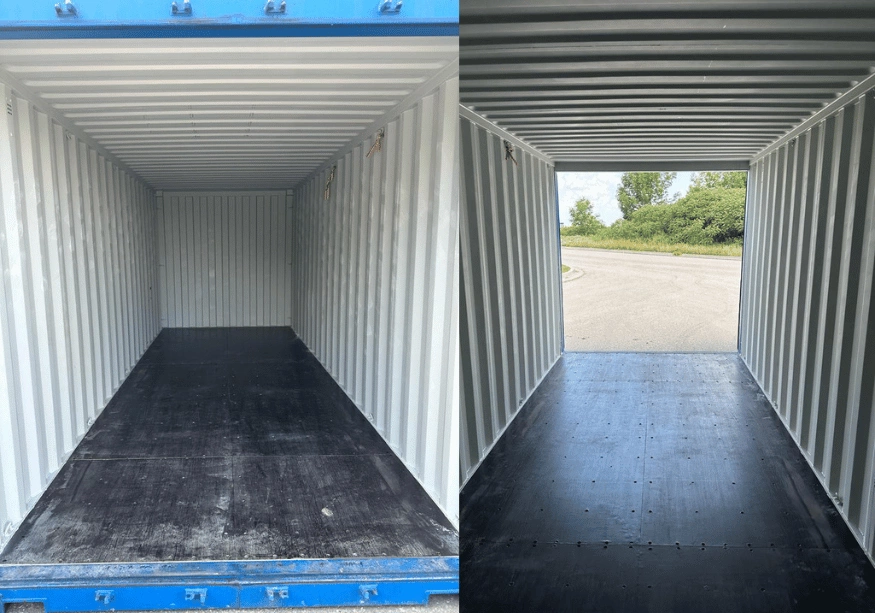
The Process of Buying C Cans for Sale
Selecting a Reputable Supplier
Finding a reputable supplier is key to a successful C can purchase. Look for suppliers with a solid track record, a wide selection of containers, and excellent customer service.
A reputable supplier will have a transparent and straightforward buying process. They will provide detailed information about the containers they offer, including their condition, specifications, and any customization options available. They should also be responsive to your inquiries and provide clear pricing information.
Additionally, it’s important to consider the supplier’s location and delivery options. If you’re purchasing a container from a supplier located far away, inquire about their delivery services and associated costs. A supplier with experience in delivering containers to various locations can ensure a smooth and efficient delivery process.
Understanding Pricing and Delivery
The price of C cans can vary widely based on size, condition, and location. New containers generally cost more than used ones, and specialized types like High Cube or Reefer containers may carry a premium. Delivery costs also play a significant role in the overall price, especially for distant locations or challenging delivery sites.
When considering the price, it’s important to evaluate the value you’ll be getting. Take into account the condition of the container, any modifications or customization options included, and the reputation of the supplier. While it may be tempting to opt for the cheapest option, it’s crucial to ensure that you’re getting a container that meets your needs and is in good condition.
Prepare for the delivery by ensuring the site is accessible, clear of obstacles, and has a level foundation. Communicate any specific requirements or challenges to the supplier in advance to avoid any surprises on delivery day.
Preparing for Your C Can Delivery
Site Preparation
Proper site preparation is crucial to ensure the smooth delivery and installation of your C can. Start by selecting a suitable location that is easily accessible for the delivery truck and crane, if necessary. The area should be clear of any obstacles such as trees, power lines, or other structures that could impede the delivery process.
It’s also essential to ensure that the ground is level. An uneven foundation can lead to issues with the container’s stability and may prevent doors from opening and closing properly. In some cases, laying a gravel pad or concrete foundation may be necessary to provide a stable base for the container.
It’s advisable to consult with the supplier or a professional contractor to assess the site and provide guidance on the necessary preparations. They can help determine if any additional steps, such as site grading or foundation construction, are required.
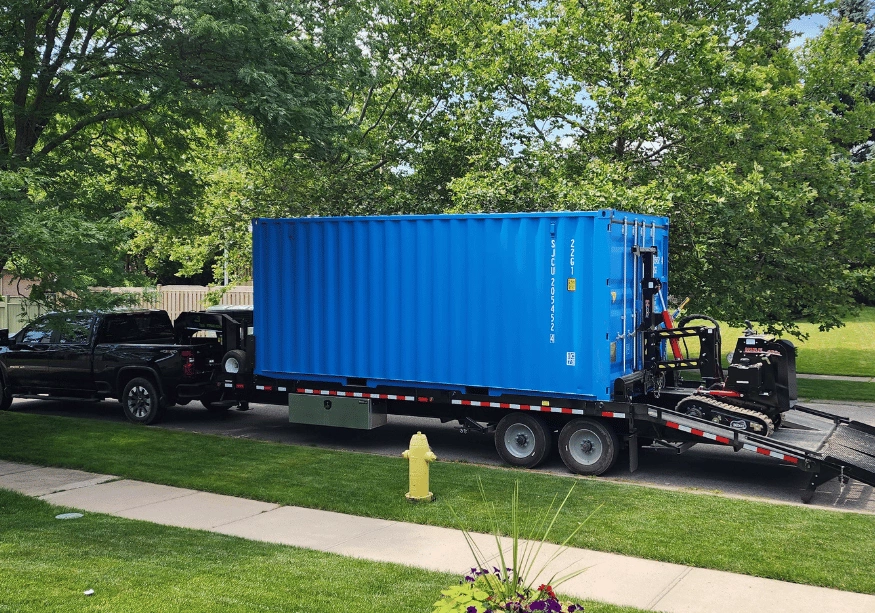
Installation and Setup
Once your C can has been delivered, the next step is installation and setup. For basic storage use, this may simply involve positioning the container on the prepared site. However, for more complex projects like container homes or offices, additional steps such as connecting utilities, installing insulation, and finishing the interior will be required.
If you’re using the container for storage purposes, it’s important to ensure that it is properly secured to prevent any movement or shifting. This can be done by anchoring the container to the ground or installing additional support structures if necessary.
For container homes or offices, the installation process will involve more extensive modifications. This may include cutting openings for doors and windows, framing interior walls, and installing electrical and plumbing systems. It’s crucial to work with experienced professionals or contractors who have expertise in container construction to ensure the structural integrity and safety of the modified container.
Deciding between DIY and professional setup is an important consideration. While DIY can save money, it requires a certain level of skill and knowledge, especially for more complex modifications. Professional installation, on the other hand, ensures that the job is done correctly and can save time and potential headaches down the road.
Maintenance and Upkeep of Your C Can
Long-term Care
To ensure the longevity of your C can, regular maintenance and upkeep are essential. This includes inspecting the container for signs of rust or wear, especially if it’s a used container. Applying a fresh coat of paint can help protect against corrosion and maintain the container’s appearance.
It’s also important to check the condition of door seals and gaskets regularly to ensure that the container remains watertight. Replacing worn or damaged seals can prevent moisture from entering the container and causing damage to stored items.
In addition to external maintenance, it’s crucial to monitor the interior environment of the container. Proper ventilation is essential to prevent condensation and the buildup of moisture, which can lead to mold and mildew. Inspecting the container for any signs of leaks or water intrusion is important, as addressing these issues promptly can prevent further damage.
Regularly inspecting and maintaining your C can will help prolong its lifespan and ensure that it continues to serve your storage or project needs effectively.
Creative Ideas and Inspirations for Using C Cans
C cans offer a world of possibilities for creative and innovative projects. Here are just a few ideas to inspire your next project:
- Container Homes: Transform a C can into a cozy and sustainable home, complete with all the amenities of traditional housing. Container homes can be designed to suit various architectural styles and can be customized to meet specific needs and preferences.
- Mobile Offices: Create a portable office space that can be easily relocated as your business needs change. Mobile offices are ideal for construction sites, events, or any situation where a temporary office space is needed. They provide a comfortable and functional workspace, allowing you to work efficiently in any location.
- Pop-Up Shops: Use a C can to set up a temporary retail space that can travel to different locations. Pop-up shops have gained popularity as a cost-effective way for entrepreneurs to showcase their products and engage with customers. The unique and eye-catching design of a repurposed shipping container can attract attention and create a memorable shopping experience.
- Art Studios: Convert a C can into a private and secure art studio, perfect for artists who need a dedicated space to work. The controlled environment of a container studio provides a quiet and inspiring atmosphere, allowing artists to focus on their craft.
These are just a few examples of the creative possibilities that C cans offer. The flexibility and versatility of these containers make them an ideal choice for those looking to think outside the box and create unique spaces.
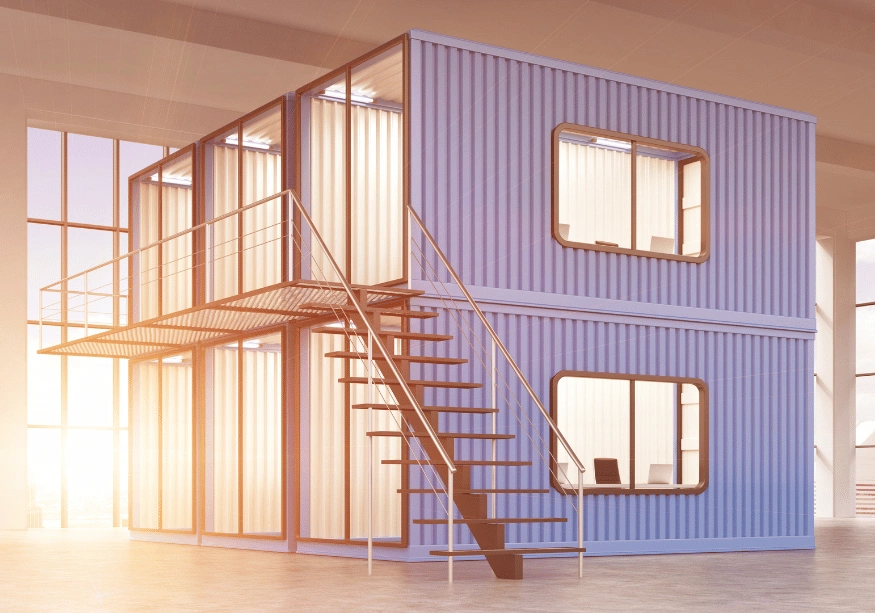
Conclusion
C cans for sale offer a flexible, durable, and cost-effective solution for a wide range of storage and construction needs. Whether you’re looking for a simple storage solution or embarking on an ambitious container home project, understanding the options, preparation, and maintenance involved is key to success. By following the guidance provided in this ultimate guide, you’ll be well-equipped to make an informed decision and get the most out of your C can investment.
FAQs About Buying C Cans
Can I customize a used C can?
Yes, both new and used C cans can be customized to meet your specific needs, from simple modifications like painting to more complex alterations such as installing windows and doors.
How long do C cans last?
With proper maintenance, a C can can last for 20 years or more, making it a durable option for storage and construction projects.
Are C cans environmentally friendly?
Yes, repurposing used C cans for storage or construction projects is an excellent way to recycle and reduce the demand for new building materials, contributing to environmental sustainability.
By addressing these common questions, we hope to provide additional clarity and support as you explore the possibilities of C cans for sale.
Storage-Tech Contact Information
Address: 1099 Commerce Way, Unit 4 Woodstock, ON
Phone: 1.833.590.4357
Email: info@storage-tech.ca



